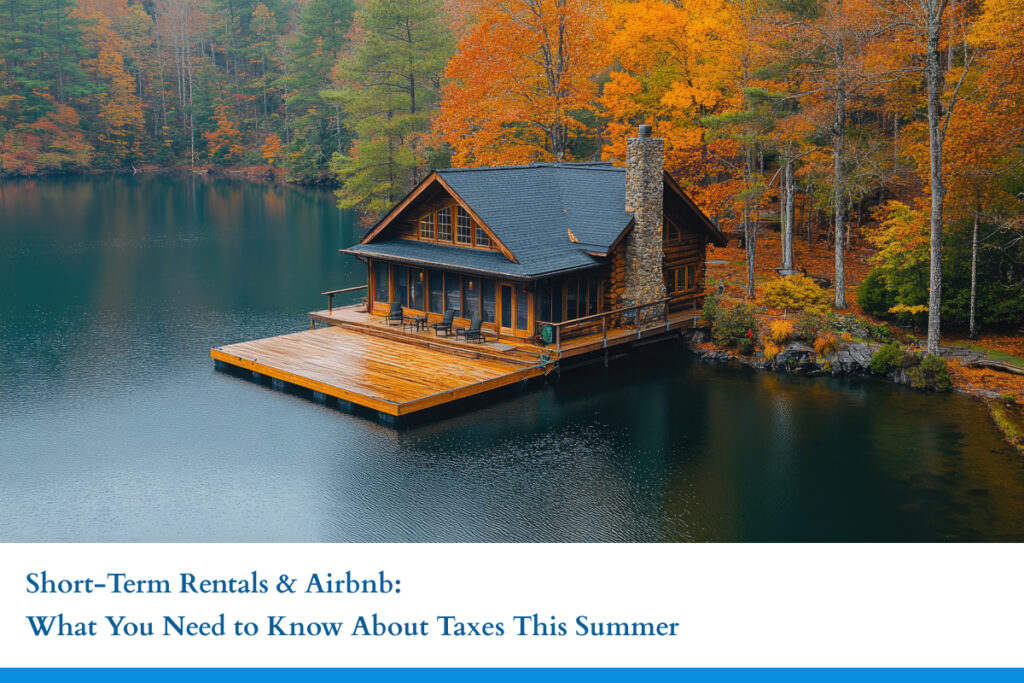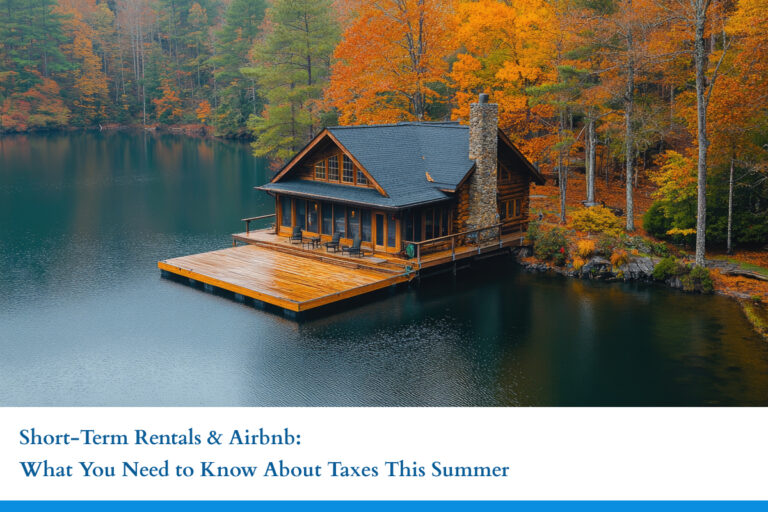What You Need to Know About Taxes This Summer
As summer approaches and Canadians gear up for travel, many homeowners are turning to short-term rentals like Airbnb to earn extra income. While this can be a lucrative opportunity, it also comes with important tax responsibilities. Whether you’re renting out a basement suite, cottage, or investment property, understanding how the Canada Revenue Agency (CRA) treats short-term rental income is essential. From GST/HST obligations to tax deductions, knowing the rules can help you avoid surprises and maximize your return. If you’re unsure how your rental fits into your broader tax picture, working with a trusted chartered professional accountant, like MMT CPA, can make all the difference.
Reporting Income from Short-Term Rentals
Income earned through platforms like Airbnb is considered taxable by the CRA. This means you must report all rental income on your annual tax return, even if it’s a one-time rental or only for a few weeks each year. Failing to do so can lead to penalties and interest.
Short-term rental income is generally classified as either rental income or business income, depending on the services you provide. If you simply rent out a furnished unit without offering additional services like meals or cleaning, it’s likely considered rental income. However, if you provide hotel-like services, your income may be classified as business income, which has different tax implications and may require CPP contributions.
If you’re unsure how to report your rental income or what qualifies as deductible, MMT’s personal tax preparation and filing services in Calgary and Vancouver can help ensure your return is accurate and optimized for tax savings.
Claiming Tax Deductions for Airbnb and Short-Term Rentals
One of the benefits of short-term rentals is the ability to claim expenses against your rental income. Deductible expenses may include mortgage interest, property taxes, insurance, utilities, internet, maintenance, and advertising fees. You can also deduct a portion of capital cost allowance (CCA) on the building, although doing so may affect your principal residence exemption if the property is your primary home.
It’s important to only claim the portion of expenses that relates to the rental activity. For example, if you rent out your cottage for six weeks of the year, you can only deduct the expenses for that six-week period. Similarly, if you rent out one room in your home, your deductions must reflect the square footage used for rental purposes.
GST/HST Considerations for Short-Term Rentals
GST/HST applies to most goods and services in Canada, and short-term accommodations are no exception. If your total revenues from taxable supplies (including short-term rentals) exceed $30,000 in a 12-month period, you must register for, collect, and remit GST/HST. This threshold includes all sources of business income, not just rental income.
Once registered, you must charge GST/HST on each booking and remit the collected tax to the Canada Revenue Agency (CRA). You may also be eligible to claim Input Tax Credits (ITCs) on expenses related to your rental. Please note that long-term residential rentals (those lasting more than one month) are generally exempt from GST/HST, whereas short-term stays are considered taxable.
Some digital platforms, like Airbnb, may collect and remit GST/HST on your behalf in certain provinces. However, you’re still responsible for tracking your income and confirming what has been reported to the CRA.
CRA Rules and Compliance
The CRA has been increasing its scrutiny of the short-term rental market in recent years. They may obtain data from platforms like Airbnb to identify hosts who are not reporting income. To stay compliant, maintain detailed records of your rental activity, including:
- Booking dates and guest information
- Gross rental income received
- Receipts and invoices for all expenses
- Proof of GST/HST registration and filings (if applicable)
Even if you rent your property only occasionally, you must report this income accurately. Ignorance is not a defence against penalties, and the CRA expects full compliance from all taxpayers.
For a deeper look at your responsibilities as a rental income earner, consult the CRA’s guide on rental income.
What If You Sell a Short-Term Rental Property?
If you decide to sell a property that you’ve used for short-term rentals, the tax implications can be significant. You may be subject to capital gains tax on any increase in the property’s value. If you claimed depreciation (CCA) on the property, you could also face a recapture of that amount.
Additionally, if the property was your principal residence for part of the time, your eligibility for the principal residence exemption may be affected. Accurate record-keeping and guidance from a CPA are crucial when planning the sale of a rental property to avoid unexpected tax consequences.
Make Tax Season Easier with MMT CPA
Navigating taxes for short-term rentals doesn’t have to be complicated. At MMT CPA, we help property owners across Manitoba understand their obligations, minimize their tax burden, and stay compliant with CRA regulations. Whether you rent occasionally or operate multiple Airbnb units, we can provide tailored advice to ensure your tax strategy supports your financial goals.





